Conferences at Findhorn have played a formative role in the evolution of the Community. An early significant event in the development of the Park Ecovillage at Findhorn was the conference, ‘WORLD CRISIS AND THE WHOLENESS OF LIFE’ in 1976. This conference was the first to be held at Findhorn to include pioneers in the newly emerging environmental movement.
The presence of E.F Schumacher and Lady Eve Balfour brought gravitas to the proceedings. They grounded and gave form to the changes needed as a result of the momentous future changes predicted by David Spangler and Sir George Trevelyan. Schumacher’s alternative technologies and Lady Eve’s organic farming methods were to become cornerstones of emerging eco-villages, including the Park Ecovillage at Findhorn. The focus on the interconnectedness and wholeness of all life as an antidote to the current crises the world faces, created by separation and focus on the physical world, is as important now as it was then.
The presenters at the conference were David Spangler, E.F. Schumacher, William Irwin Thompson, Lady Eve Balfour and Sir George Trevelyan. The conference was focalised by Tom Welch and Roger Doudna. (hyperlinks lead to the profiles of those who are COIF Members)
Roger shares his recollections of the conference in an interview in January 2024.
The Presenters
David Spangler’s 1971 book ‘Revelation: Birth of a New Age’ was popular reading in the Community at the time of the conference. It told of humanity’s coming transformation towards integration and wholeness: the subject of the conference. David had lived in the Community and established an education programme in the early 1970s before returning to the US in 1973.

Revelation David Spangler 1973 book cover
He was a natural choice for conference presenter but, unfortunately as yet, we have no record of the content of his presentation.
E.F. Schumacher (1911-1977) was an internationally influential economist, well known for his seminal work ‘Small is Beautiful’ that criticised modern economies and advocated instead human scale communities powered by innovative technologies.
To read more about his life and work click here.
- Photograph from cover of Small Is Beautiful 1973.
- Small Is Beautiful book cover 1973
In his conference presentation, Schumacher shared his view that mankind is at the end of three distinct eras:
- A world view informed by Descartes that values what is known through the senses above spiritual knowledge, and encourages an accumulation of material things as a path to happiness.
- A system of society that is shaped by a division of labour introduced at the time of the industrial revolution, which leads to the degradation of the human being.
- An economic system driven by a belief in limitless resources, resulting in a ravaged and degraded eco-system.
He maintained that these eras are drawing to a close and we need to build a new era that acknowledges the wholeness of life. He outlined crises on many levels; an energy crisis, a nuclear crisis, an ecological, sociological, political and cultural crisis threatening our whole way of life. He called on the audience to foster a new world view and engage in the rebuilding work. He communicated a belief in his audience that the human spirit can seek solutions and bring about change.
A full recording of his talk at Findhorn is available here: https://centerforneweconomics.org/publications/the-world-crisis-and-the-wholeness-of-life/
Lady Eve Balfour OBE (1898-1990), an early advocate of organic gardening, was a founding member and first president of the Soil Association. She first became interested in Findhorn through Sir George Trevelyan, who suggested that the Soil Association should pay attention to the gardens at Findhorn where unexpected results were being obtained on very poor soil. In 1943 she had published the hugely successful book ‘The Living Soil’. Angus Marland remembered a beautiful detail of her talk at the conference. We have included Lady Balfour in a Topic – Our Foundations as we see her as one of the formative figures of our Community.
William Irwin Thompson (1938-2020), a friend of David Spangler, was an American philosopher and poet. In 1972 he founded the Lindisfarne Association, an association of scientists, artists and scholars devoted to the study and realisation of a new planetary culture. We have no record of William Irwin Thompson’s presentation at this conference but recordings of his Lindisfarne lectures can be accessed on this website.
Sir George Trevelyan (1906-1996) was a British educational pioneer who studied Anthroposophy before founding the Wrekin Trust in 1971. He was awarded the Right Livelihood Award in 1982 for ‘educating the adult spirit to a new non-materialistic vision of human nature.’ In his teachings he inspired and encouraged the synthesis between science and spirituality and he worked closely with the Findhorn Foundation and the Soil Association. For more information on Sir George’s work click here.
Sir George’s presentation at the conference was entitled, ‘The Vision of Wholeness‘. In it he delved into the spiritual world as he sees it, with the physical world overseen by a multi-dimensional hierarchy of cosmic energy with which it is possible to connect through meditation. He talked of moving into a new age whereby ageless wisdom, and connection with the wholeness of life, becomes possible for all. He predicted there is no human precedent for knowing how to respond to coming changing circumstances.

Black Panther (credit: Darshan Ganapathy, CC BY-SA 4.0 <https://creativecommons.org/licenses/by-sa/4.0>, via Wikimedia Commons)
He likened this dilemma to a panther with all its wonderful instincts let loose in the traffic of Piccadilly Circus. The animal’s instincts would be useless and the beast would panic. Only a human being that could inhibit instant reaction, maintain poise, do nothing and listen to receive inspiration from a higher source for a course of action never before followed, will be able to negotiate this age of change, according to Sir George.

I first visited Findhorn in 1979 and came back regularly before buying my caravan when I retired in 2019. I worked as Director of an NHS Training School running a clinical and doctorate programme.



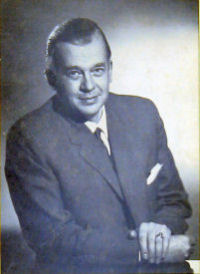
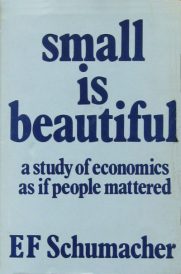
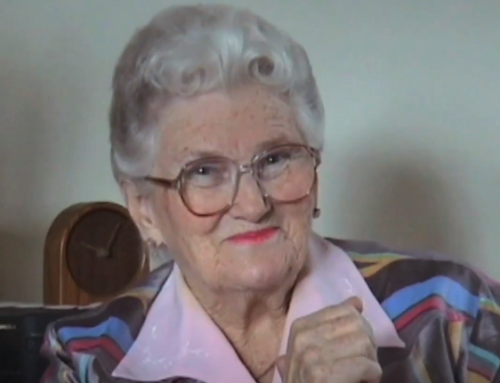

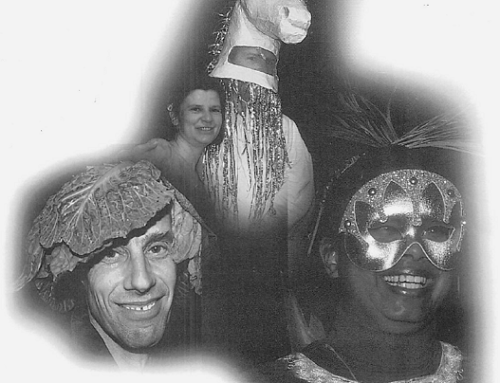

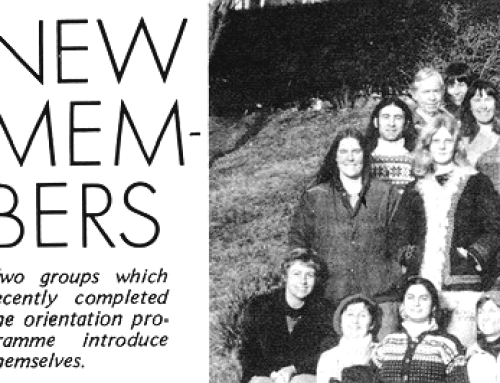



Leave A Comment